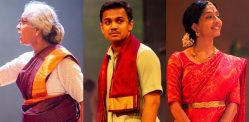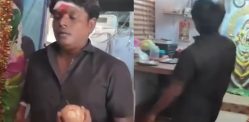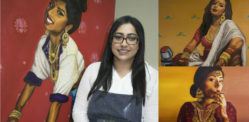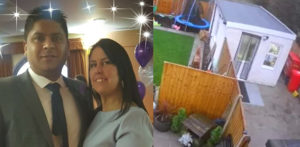"A show about what democracy requires in order to survive"
Shakthi Shakthidharan’s critically acclaimed play Counting and Cracking is hitting the UK stages in 2022.
Counting and Cracking was originally co-produced by Belvoir with Co-curious and is part of the UK/Australia Season.
The Australian-Sri Lankan writer and director whose debut play made its first appearance at the 2019 Sydney Festival graces both Edinburgh and Birmingham audiences.
Counting and Cracking received impeccable reviews during its showcase in Australia and many expect a similar reaction in the UK.
The three-hour epic is a powerful look into a Sri Lankan-Australian family’s experiences of migration, civil war and heartbreak.
Whilst the play oozes romance, joy and laughter, the multigenerational tale is full of political strife as the characters try to come to terms with the idea of home.
Shakthi, along with director Eamon Flack, Artistic Director of Belvoir, called upon the creativity of 19 performers, which includes three musicians, all hailing from six different countries.
This means the show is full of exhilarating dance sequences, cultural settings and traditional South Asian fashion.
It’s also performed in English, Tamil and Sinhalese, with a live translation into English so all fans can enjoy this spectacle.
Shakhti, who exclusively spoke to DESIblitz about Counting and Cracking, along with the story behind it, adds how important it is to use theatre as a medium of messages.
This is exactly what the show does. The narrative of the play is to shine a light on the historical purpose of Sri Lanka and its people.
But, the most beautiful thing is that the target audience is not just Tamils or South Asians, but is much more vast.
The themes of family, friendship, love, belonging and identity resonate with absolutely everyone.
So, there’s no wonder why Counting and Cracking is highly anticipated to be one of the most trailblazing and riveting plays of modern times.
DESIblitz dives deeper into the show with Shakthi Shakthidharan to get a better glimpse of its creation, production and impact.
Can you tell us a bit about your journey into playwriting?
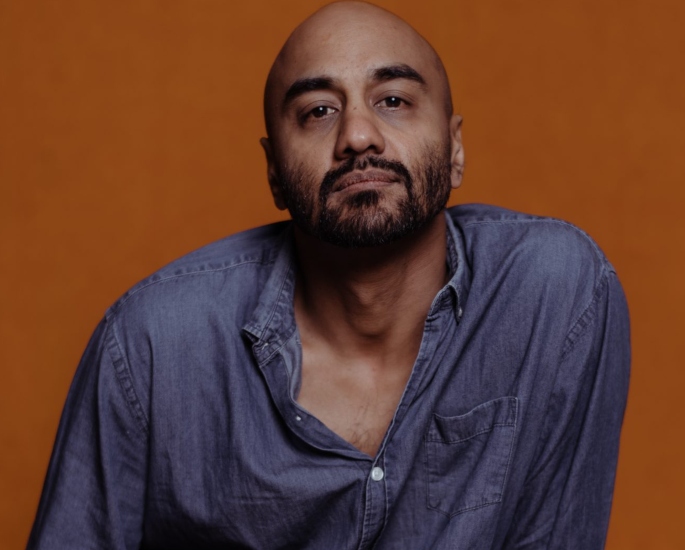
I grew up in a Sri Lanka Tamil family. So, being an artist is not considered a real job.
I initially studied journalism and did that for a very short amount of time, but kind of knew that I wanted to be an artist.
So, once I’d done that to satisfy my parents, I started an arts company.
I worked in community arts for a long time, for about 20 years. And that was helping refugee and indigenous communities in Australia tell their stories.
Then Counting and Cracking was the first time I turned that lens on myself and my own community.
So it was a very late entry into playwriting and Counting and Cracking’s my first play. But it was developed through as much a traditional playwriting process as a community development process.
What inspired you to create ‘Counting and Cracking’?
Growing up I didn’t know much about what happened in Sri Lanka and what led to there being war.
My parents hadn’t told me anything about it and I didn’t know much about my own family history.
And so when I hit my late 20s, I think a lot of migrants and kids of migrants go through this feeling of ‘it’s not enough just to assimilate’.
We start to think ‘I can kind of fit into the place I’ve ended up in’ but you need to know your roots to be the full version of yourself.
“‘Cause I’m an artist, I get to take advantage of special opportunities we get.”
This means in order to find these feelings out, I can make it an art project and ’cause I’ve worked in the community for so long, the first thing I did was talk to people.
They were just conversations that went on for a long time with just dozens of Sri Lankans in Australia, around the world, and in Sri Lanka, of course.
So that was the bedrock of the play, the substance of all these conversations. And everything in the play is a real thing.
Ultimately it’s a work of fiction as a whole, but every single specific thing in the play is real and has happened to someone.
What motivated you to call the play ‘Counting and Cracking’?
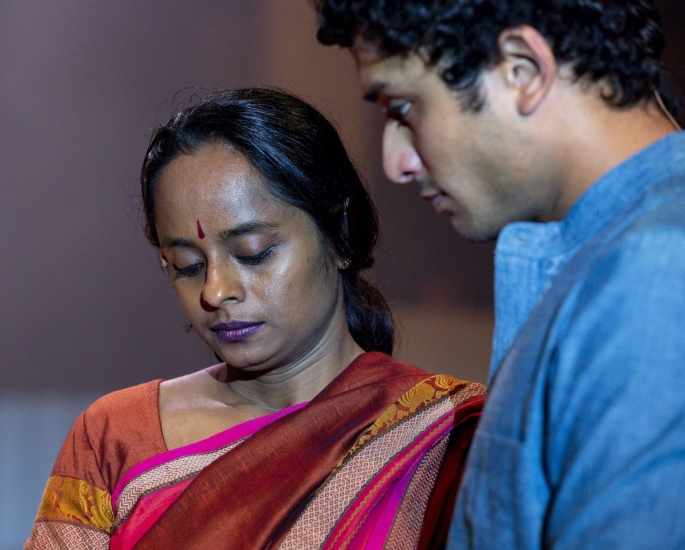
My mum was not keen on me doing this show, initially, but now she’s a big supporter.
I went back to Sri Lanka because I’ve still got family there which was kind of against her wishes. I wanted to talk to my family there to start learning more.
One of my uncles had a shoebox in his house of these letters that my great grandfather had written to his grandchildren. We read them to each other.
I learned that my great-grandfather was born a farmer and went to English boarding school and had a fast-forward kind of life.
After coming back from university in Oxford, he became the only Tamil in the first post-independence cabinet of the government of Sri Lanka.
His life mirrors so much of that country’s life.
He started his political life as a great unifier of people and became more and more cynical about the possibility of that succeeding over the course of his life.
By the end of his life, he was a realist about whether a government can or cannot help its minority communities and what the limits were of that.
In this letter, he wrote the lines ‘democracy is the accounting of heads against certain limits and a cracking of heads beyond those limits’.
This play has lots of fun in it and explores this kind of two great love stories in different generations of this one family.
It’s a very human story with lots of joy and cheekiness and all that. But it’s also a show about what democracy requires in order to survive.
I just thought, this quote for my great grandfather summed up a lot of things. The line is actually in the show, it’s something a character says deep into act three.
Can you tell us about some of the topics the play brings up and the importance of these?
On a personal and human level, a lot of the show is about these secrets that a mum has held from her son, her whole life.
We go on this kind of epic journey where we learn about her as a younger woman, and we learn what those secrets were and how that led to her believing that the father was dead. When in fact he’s not.
I think there’s so much that our parents have gone through and know that they never tell or pass on to their kids.
This show is a really honest look into what it takes to unlock those hidden universes that are inside our elders and also what it takes for our elders to start opening up more to the young people.
“I think it’s worth it for every family. It’s a universal need, but particularly for migrant families.”
If we can’t figure this out, then so much dies when our elders die and it means that the active migration is the end of something rather than the beginning of something.
So the play on a human level explores that very honestly and deeply. I think that’s really important.
Lots of families and lots of people who come to the show end up opening up conversations with their parents that they never had before and couldn’t have had, I think, without seeing the show.
Then on a societal level, the show explores the decades leading up to Sri Lanka’s descent into civil war and looks at how people tried heroically to stop that descent, but couldn’t stop it.
I think Sri Lanka’s a kind of cautionary tale because Sri Lanka succumbed to the politics of division. It’s such an interwoven country.
There’s so much friendship and love and marriages and collaboration and businesses working together between Tamils and Singhalese and Muslims and Indians and Buddhists.
But the politics of division drove a wedge between people which had horrific consequences and the show really condensed those politics.
I think that’s really important as well because there are many leaders around the world, including some in the UK who are waging those politics in order to accrue power.
And it’s a very good way to gain power, but it has really horrifying consequences because it creates divisions between people where those divisions didn’t need to be.
So on a political or societal level, the play explores that too, and why and how people do that.
What type of research did you have to do for ‘Counting and Cracking’?
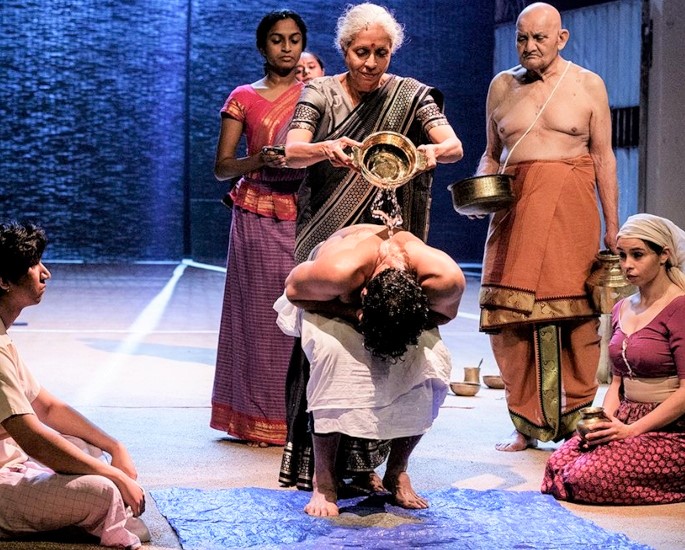
I don’t think you can learn about what really happened in Sri Lanka just through history books or media articles. It’s such a nuanced topic.
When I talked to many Sri Lankans around the world, it became very clear to me that this was a very interwoven and united country.
I wanted to tell a story that offered a possibility for that reconciliation and that spirit of unity to continue in which all parts of the Sri Lankan community could come to and feel safe in.
To present that was something only theatre can really do, it’s a place where many different truths can gather and we can have them all butting up against each other.
I really did talk to a lot of people about their personal experiences and had very vulnerable and personal conversations.
That was probably a research process not many playwrights usually go through.
The other thing is that I let the way that people reacted to the early versions of the work affect the development of the work.
So for example, my mum started opening up about Sri Lanka after she read the first draft of the play.
The way she opened up actually changed the arc of the character that’s inspired by her.
So right through until we opened it in Australia a few years ago, right up until opening night, I was still making small changes based on how people were reacting to the play.
And this beautiful process occurred when the play was changing the world of those people who were involved in its development.
It changed how they thought and felt about the world and how they related to the homeland and how they related to their new country that they come to. That effect was changing the play.
So that fluidity, which we’re used to in community development processes is not usual in traditional theatre and it was really nice to bring that into a big epic show.
It’s a big piece of grand tech space theatre but has these wonderful, very different parishes underneath it.
Which characters do you resonate the most with and in what ways?
I think when I first started writing it, the character of the son in the play – his name is Siddhartha – is the one closest to me.
But now when I watch the show, I feel he’s inspired by a past version of me. It’s me in my 20s or early 30s.
Obviously getting older changes you, but also the play itself has changed me in terms of my relationship with my community, to Sri Lanka and to Australia.
Definitely now, I can feel how much the play has changed me in a positive way by looking at that character as someone who’s a younger version of me.
There are 19 people in this show and they put on 50 characters between them. Every character in this play needs something and goes after it.
“It’s a play that’s full of characters who are in small ways or big ways reshaping their world.”
After the season in Australia, it gives you hope in a very non-cheesy way.
It’s just nice to see a group of characters really put themselves out there and try to reshape the world and acknowledge their hunger.
It’s hard to be that open and vulnerable in real life. So I feel like the show has changed me on a very deep level.
I would resonate with characters, like the one inspired by my great grandfather a lot more now because it gives assurance that that kind of life is worth living.
A life where you put yourself out there more and fight more for what you believe in. The play provides a lot of strength and support to those who might aspire to live a life like that more.
As you are of Sri Lankan heritage, what type of emotions did you feel at each stage of putting this play together?
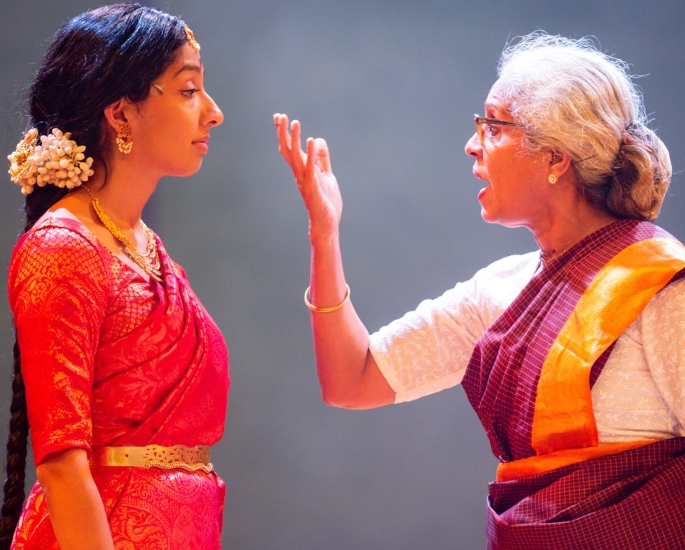
I was pretty terrified for a lot of it because the last thing I wanted to do is write something that might cause more pain.
I was really worried that people would come to the show and walk out from the Sri Lankan community.
I’m not interested in a type of theatre where you only present certain bits of who your people are. I think we’ve all had enough of that, South Asians in particular.
We’re so often model migrants and there’s this habit in our culture of presenting the best bits of ourselves publicly.
I wasn’t interested in doing that and I knew that, in a way, that limits your acceptance because you’re always operating on the terms of being a minority community.
Whereas if you just put the fullness of yourself out there, who your people are and all their glorious complexity, it’s an opportunity for us to reclaim that space.
I wanted to make sure I did that. But I was terrified. I was terrified that it wouldn’t go well.
But I had an inkling dream development that it was going to be alright because of the way my mum reacted and of the way the cast reacted.
The cast has a lot of Sri Lankans in it, obviously. They’re all south Asians except for one Aboriginal woman.
They’re all from around the world, some are from Sri Lanka, some are from the diaspora, some are from India, and some are of Indian heritage.
So it had this effect on people which was really deep and profound and so I had some hope that it’ll be okay.
Then the Australian season was just amazing. It really was something that the whole chunk of the community gathered around.
Even if they didn’t agree with things, they stuck around and really engaged with it deeply.
So that terror changed into relief and now it’s something where I feel like we have to be custodians in this project because it has this power over people really helps.
A lot of people honestly confront why they left their homeland or what it is that happened there. It’s a very moving and intense experience for Sri Lankans, in a good way.
It’s full of laughter and tears. But lots of different types of people resonate with it.
It has a really big impact on the Irish community, other South Asian communities, Jewish communities, and South African communities.
In the Australian season, all of these communities had really big reactions to it. So now, now I’ve shifted from terror, which is great.
It’s it is not a normal show. I don’t think I’ll get to do another show like this in my life.
It’s got its own strange power and it’s very human and at the same time epic and affects people in a very deep way.
What were some of the challenges you faced when creating this show? How did you overcome them?
There’s never been a show of that scale about a migrant Australian story in Australian theatre history.
I don’t think there’s ever been a show with 19 brown people doing mainstream epic theatre work before in Australia.
And I don’t think there’s been a work of that scale made in Australia before that had such community development processes running through it.
The vast majority of the industry was not interested in supporting it. But Eamon Flack directs this show and he believed in it after reading the first draft.
Eamon and I made a pact that we had to do this properly. Because when you make something groundbreaking like that, it can’t go badly.
I was really worried that if it went badly, then it gives everyone an excuse to say, ‘it’s just too risky to do shows like this’.
So, I really wanted it to go well so it was proof that a concept like this works.
So we made an agreement that we would do it properly. Belvoir realised that they’d have to do this show in a way that they’d never done a show before.
So that stuff was crucial because no one went into doing it thinking ‘oh this is just another theatre show’, it sounds simple, but it changes everything.
It means that at every step of the way, we could do things in a new way and new to the mainstream theatre. It freed me up to do this properly.
Casting was also really difficult. There are five languages spoken in the play and there are all sorts of age ranges from 19 to 80.
“It took us four years to cast in the end with people from six different countries in it.”
Those actors are incredible.
They’re not just very, very, very good actors, they’re also incredible human beings who understand the project, but can speak 11 languages between them.
There are some very quick costume changes, enormous characters, and playing the full range of Sri Lankan and Australian life – so very difficult for them.
Every single possible aspect of the project required doing it in a different way. It was a miracle that we got over here as well.
It’s a very big undertaking and requires a lot of different people from very different walks of life and different parts of the arts industry to make it happen.
What type of impact do you want the show to have on audiences?
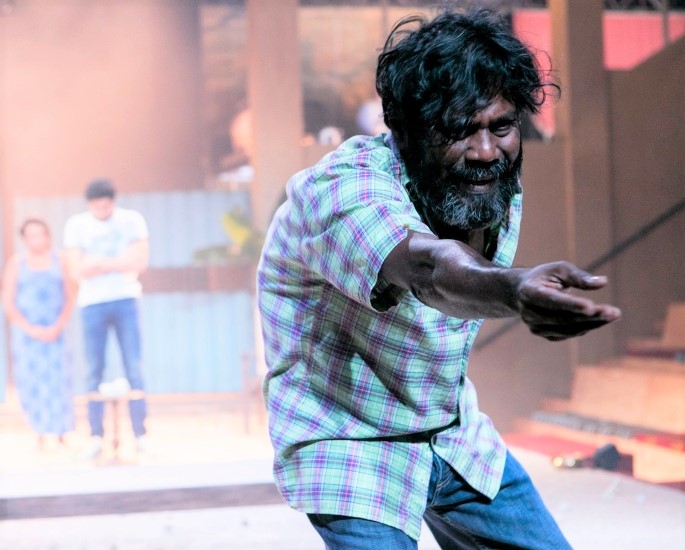
Honestly, I had no idea going into it. I was just trying to concentrate on the Sri Lankan community.
But this incredible thing happens which is that it’s all out before opening night. So many people from so many different walks of life came to it and had such deep feedback.
People really loved this universal story. What I love about it is it really proved to me that this very specific Sri Lankan story can be a universal story for everyone.
There is no story in the world that can’t be a universal story if it’s told well. I love the idea that this Sri Lankan story can be something that people from all walks of life can relate to.
It was really embraced like that in Australia. So I hope that can happen here too.
Do you think enough stories are told about Sri Lanka’s political and social history? If not, how can this change?
In the west, places like Australia and the UK are committed to backing their ideas over the years.
But there’s this expectation that projects should be close to perfect from the beginning.
These kinds of stories need care and custodianship over many, many years, and they require companies to work differently together.
The industry needs to be ready to do that.
Not just in terms of representation for us, but in terms of the audiences and continuing to make exciting theatre that’s relevant to the modern world.
Sri Lanka’s in crisis at the moment and we haven’t been that supported with looking at our own history from multiple points.
“We need to move forward and find a way to respect each other’s differences and opinions and put all the different truths forward.”
Lots of communities have gone through war and other kinds of strife. It feels easier sometimes just to be quiet but that just ends up with the communities in violence.
No one wants to take that more difficult journey talking about some very difficult truths. That’s what we need to do more of.
Watch the trailer for ‘Counting and Cracking’:
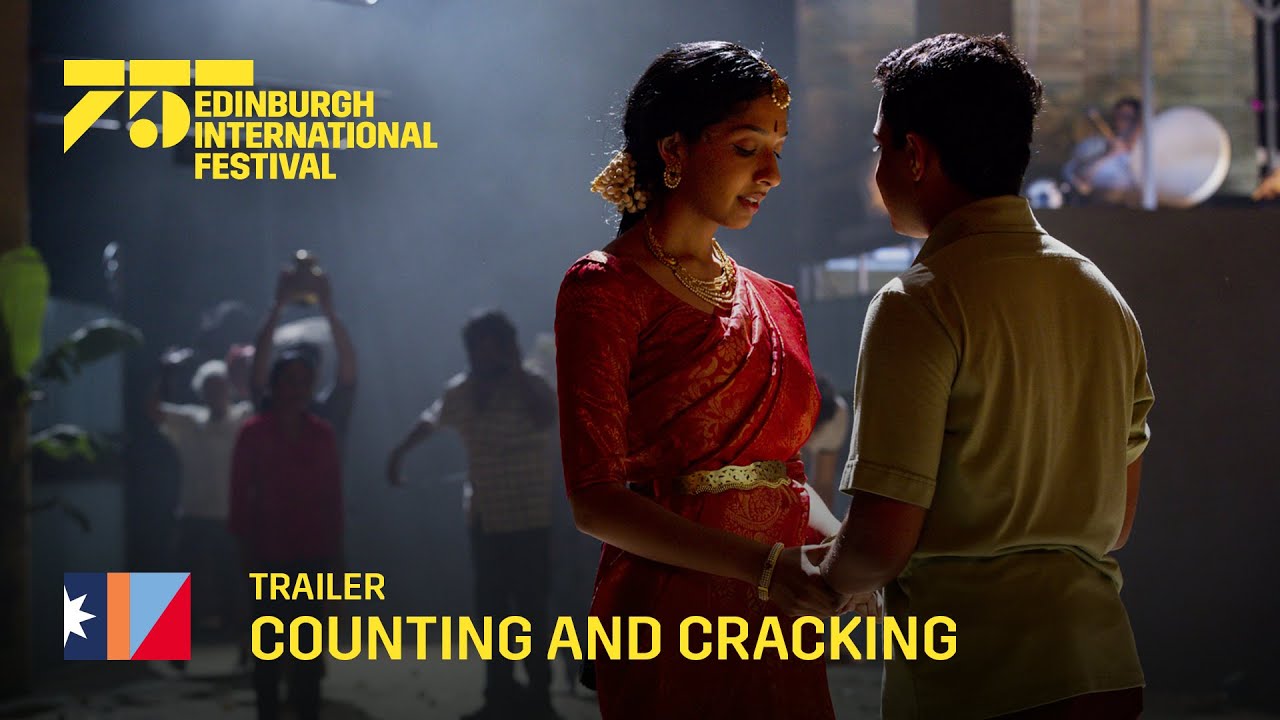
Counting and Cracking promises to be an absolute joy for audiences across the UK and the world.
Shakthi declares that the show is “nothing like you’ve ever seen before” and “there’s a lot of theatricals”.
The director adds that the play is special because audiences are “able to learn about the community deeply from the people who are actually from that community”.
The complexity of Counting and Cracking is something to behold.
The script won the Victorian Premier’s overall Literature Prize and the NSW Premier’s Nick Enright Prize for Playwriting.
The production also won seven Helpmann Awards including Best New Australian Work and Best Direction of a Play.
The show received tremendous reviews after its success at The Royal Lyceum Company as part of the Edinburgh International Festival between August 8 – August 12, 2022.
Part of the UK/Australian Season – this is one production not to miss out on.
The show will be on at Birmingham Rep from August 19 – August 27, 2022. For more information and tickets, see here.























































